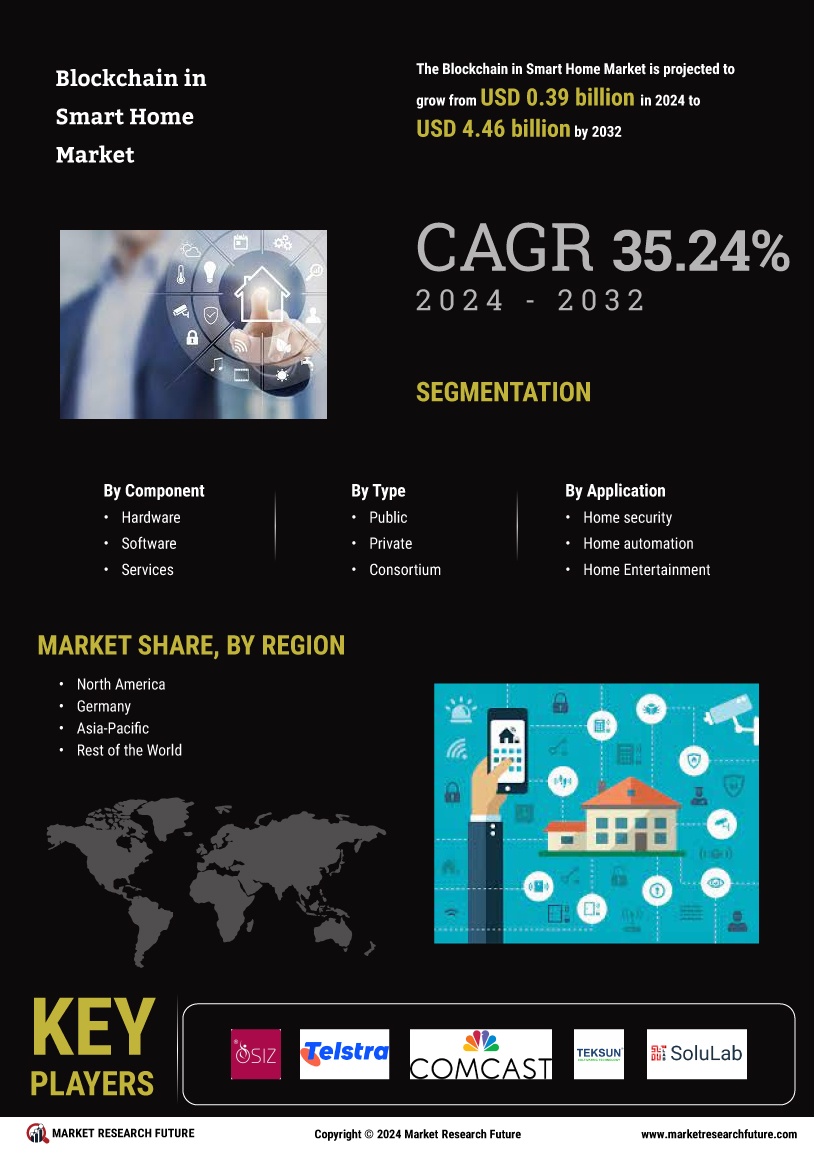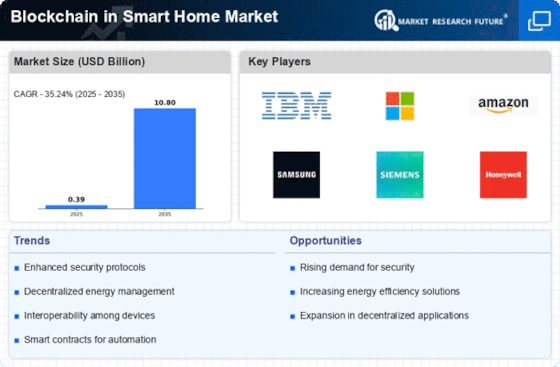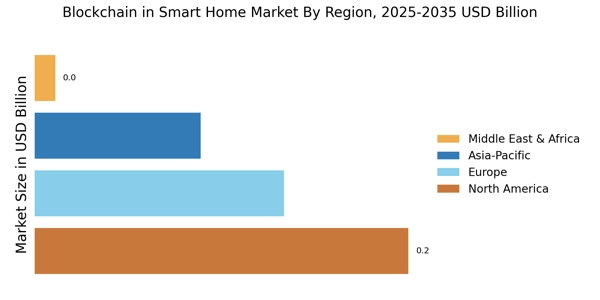Leading market players are investing heavily in research and development to expand their product lines, which will help the Blockchain in the Smart Home market grow even more. Market participants are also undertaking various strategic activities to expand their footprint, with important market developments including new product launches, contractual agreements, mergers and acquisitions, higher investments, and collaboration with other organizations. To expand and survive in a more competitive and rising market climate, Blockchain in the Smart Home industry must offer cost-effective items. Manufacturing locally to minimize operational costs is one of the key business tactics manufacturers use in the Blockchain in the Smart Home industry to benefit clients and increase the market sector. In recent years, the Blockchain in the Smart Home industry has offered some of the most significant advantages. Major players in the Blockchain in Smart Home Market, including OSIZ Technologies private Itd, Telstra, Comcast Blockchain App Factory (SA EonsofttechPvt Ltd), TeksunSoluLab Tokyo Techie Mobiloitte Tata Consultancy Services Limited Xage Security, Inc. Protokol BV. Aciana Health Systems., and others are attempting to increase market demand by investing in research and development operations. Samsung Electronics Co., Ltd., a multinational electronics corporation headquartered in South Korea, has unveiled the Smart Things Station, a smart home hub and fast charging station that offers an optimal balance of affordability and user-friendliness. This innovative product from Samsung combines hassle-free installation with seamless compatibility across a wide range of smart home devices, including Matter devices. The aim is to provide a seamless and intuitive smart home experience, in line with Samsung's renowned reputation for delivering user-centric technology solutions. Tata Consultancy Services (TCS), a leading Indian IT services and consulting company headquartered in Mumbai, Maharashtra, is a prominent member of the Tata Group with a presence across 150 locations in 46 countries. With a workforce exceeding 600,000 employees worldwide as of July 2022, TCS has recently introduced TCS Blockchain QE Services, a comprehensive quality engineering (QE) solution tailored specifically for blockchain applications. This service combines various elements such as smart contract auditing, cloud deployment design, API audits, and usability testing, enabling enterprises to effectively mitigate blockchain technology's security, privacy, and reliability risks. TCS Blockchain QE Services aims to provide robust protection and enhance the overall integrity of blockchain applications for organizations.


















